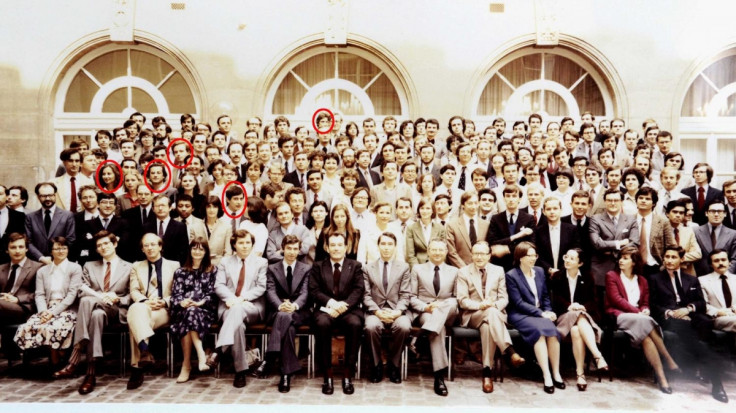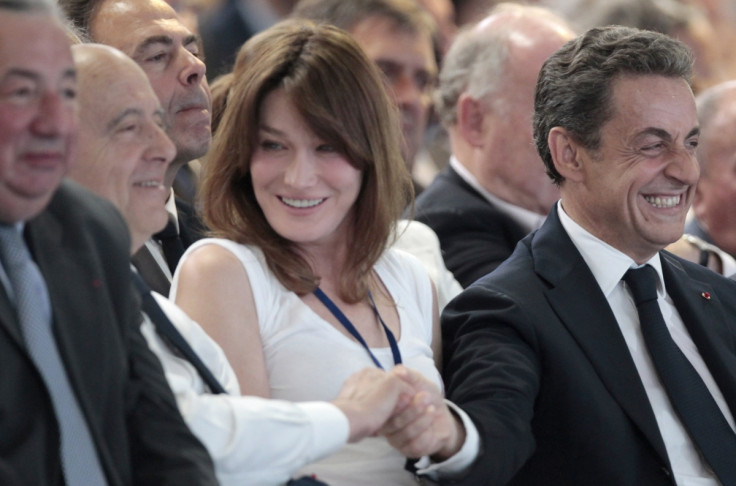Front National: France's broken political system fuelling the rise of Marine Le Pen's far-right party
Front National's (FN) loss in the regional elections on 13 December didn't just leave a bitter taste in Marine Le Pen's mouth. Despite leading the polls after the first round of voting and obtaining 27.36% of the vote nationally, the anti-immigration, anti-Europe, far-right party failed to win a single region in the election.
Following the results of the first round, which was the best achieved by the Front National in its history, the Socialist Party withdrew its candidates in the north, where FN leader Marine Le Pen was the main candidate, and in the south-east, where her niece Marion Marechal-Le Pen was running, urging its supporters to vote for former president Nicolas Sarkozy's Republican party in a bid to keep the far right from getting into power. The tactical move worked. Sarkozy's The Republicans and centre-right allies took 57.5% of the votes in the northern region, where Le Pen was standing, against her 42.5%.
Such tactical voting, coupled with the lack of representation for FN, led to many in France to question how democratic the country's political system is.
Same parties, same mistakes
When IBTimes UK spoke to residents in the French city of Lille, part of the Nord-Pas-de-Calais-Picardie region where Marine Le Pen lost, many complained of disenchantment with the current political establishment.
"We always elect the same people, the same parties. It will go on and on, always the same mistakes," said Agnès. "They keep their seats, their salaries, their advantages, whilst not caring at all about our interests," adds Michael. "Those are nice seats. And they want to keep them. They have been there for such a long time," said Maurice.
"The politicians are telling us: 'We need professionals in politics'. Let's do the assesment since the end of the Second World War until now. Can we say that thanks to the professionalism of our politicians, our top politicians, France is doing well? No, not at all, France is not doing well," observed Raymond.
Political elite
The disillusionment with France's political system comes from the elite background of many of the country's politicians, a world away from the average French voter. Many study at the country's top universities before attending l'école nationale d'administration, one of the world's best graduate schools.

Three of the last seven presidents (Valéry Giscard d'Estaing, Jacques Chirac and François Hollande) as well as seven of the last 12 prime ministers (Michel Rocard, Edouard Balladur, Alain Juppé, Lionel Jospin, Jacques Chirac, Laurent Fabius and Dominique de Villepin) came from this school.
The graduating class of 1980 alone was attended by French President François Hollande, his former partner and onetime presidential candidate Segolène Royal, and former Republican Prime Minister Dominique de Villepin.
With well-paying salaries, on average of €154k (£112k), many French politicians also stick around for a long time, even after suffering a major loss.
It all means that despite how people vote, the same faces end up in power again and again. François Hollande and Nicolas Sarkozy faced off as rival presidential candidates during the election of 2012, but first debated each other on television nationally 21 years before that.
Sarkozy lost his re-election in 2012, but is now leader of the Republican party again. Running against Hollande, whose approval ratings are the lowest for any French president in 50 years, Sarkozy is currently the favourite to win the presidency in 2017.

With the same unpopular politicians dominating the political landscape, more and more people are being drawn to outsiders like Marine Le Pen's Front National.
Change on the horizon
After Le Pen's loss in the regional elections in the northern region, her supporters told IBTimes UK they strongly believed she was the only one to bring change to France.
"We are behind her for the presidential election now. She will be President," said one. "It will change. People will change and understand eventually that it's not possible any longer. One time, Socialists, one time, Republicans, and together they block us," another added.
"She is the only one who can bring change. Because the other parties, well, we've seen what they are capable of," noted another.
Last year an opinion poll showed that 62% of French people are in favour of a new political and electoral system that would give less power to the President and more to the Parliament. Whilst this is unlikely, both supporters of Marine Le Pen and the general public agree a drastic change is needed in French politics.
© Copyright IBTimes 2024. All rights reserved.







